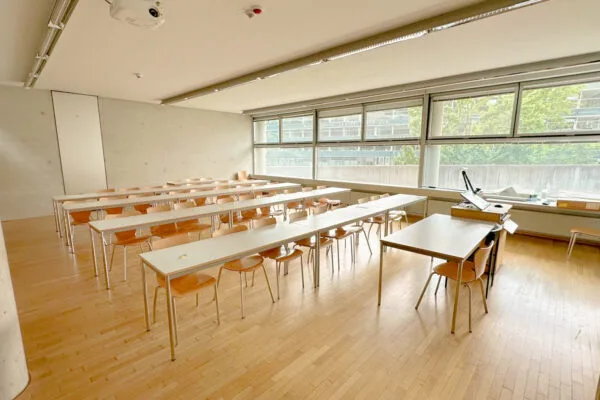
NAME:
SOWI - SR 1
BUILDING:
SOWI
FLOOR:
1
TYPE:
Seminar Room
CAPACITY:
35
ACCESS:
Only Participants
EQUIPMENT:
Beamer, PC, WLAN (Eduroam), Handicapped Accessible, LAN, Whiteboard, Speaker Desk
Rural mountain regions face a growing challenge of abandoned agricultural buildings due to demographic shifts, structural changes in agriculture, and declining family succession rates. While these vacant structures are often perceived as obstacles to sustainable rural development, they also present unique opportunities for revitalization, adaptive reuse, and community-driven innovation. The association “Perspektive Landwirtschaft” presents practical experiences and best practices in farm transfers beyond family succession, demonstrating how these approaches contribute to avoid the abandonment of agricultural buildings and fostering new economic and social dynamics in mountain regions. Traditional family-based farm succession has long been the dominant model in Alpine and other mountainous areas. However, with increasing migration to urban centers, generational gaps, and economic pressures, many farms and their associated buildings remain unoccupied. Through our work, we have explored alternative models of farm transfer—such as cooperative ownership, social farming initiatives, and leasing to new entrants—which offer viable solutions to counteract this trend. These approaches facilitate the entry of young farmers, entrepreneurs, and other stakeholders who bring new ideas, economic models, and community-oriented perspectives. Drawing from real-world examples, we share insights into successful non-familial farm transfers. Key factors influencing these processes include legal frameworks, financial incentives, participatory planning, and cultural attitudes toward land ownership. Our work demonstrates the importance of new approaches to ensure alignment with local needs while promoting resilience and sustainability. By sharing our experiences and lessons learned, we hope to participate in vital discussions on sustainable rural development in mountain regions. Alternative succession models represents not only an economic opportunity but also a means to preserve cultural landscapes, regional food systems, biodiversity and strengthen rural resilience in the face of contemporary challenges.

We and use cookies and other tracking technologies to improve your experience on our website. We may store and/or access information on a device and process personal data, such as your IP address and browsing data, for personalised advertising and content, advertising and content measurement, audience research and services development. Additionally, we may utilize precise geolocation data and identification through device scanning.
Please note that your consent will be valid across all our subdomains. You can change or withdraw your consent at any time by clicking the “Consent Preferences” button at the bottom of your screen. We respect your choices and are committed to providing you with a transparent and secure browsing experience.
Notifications